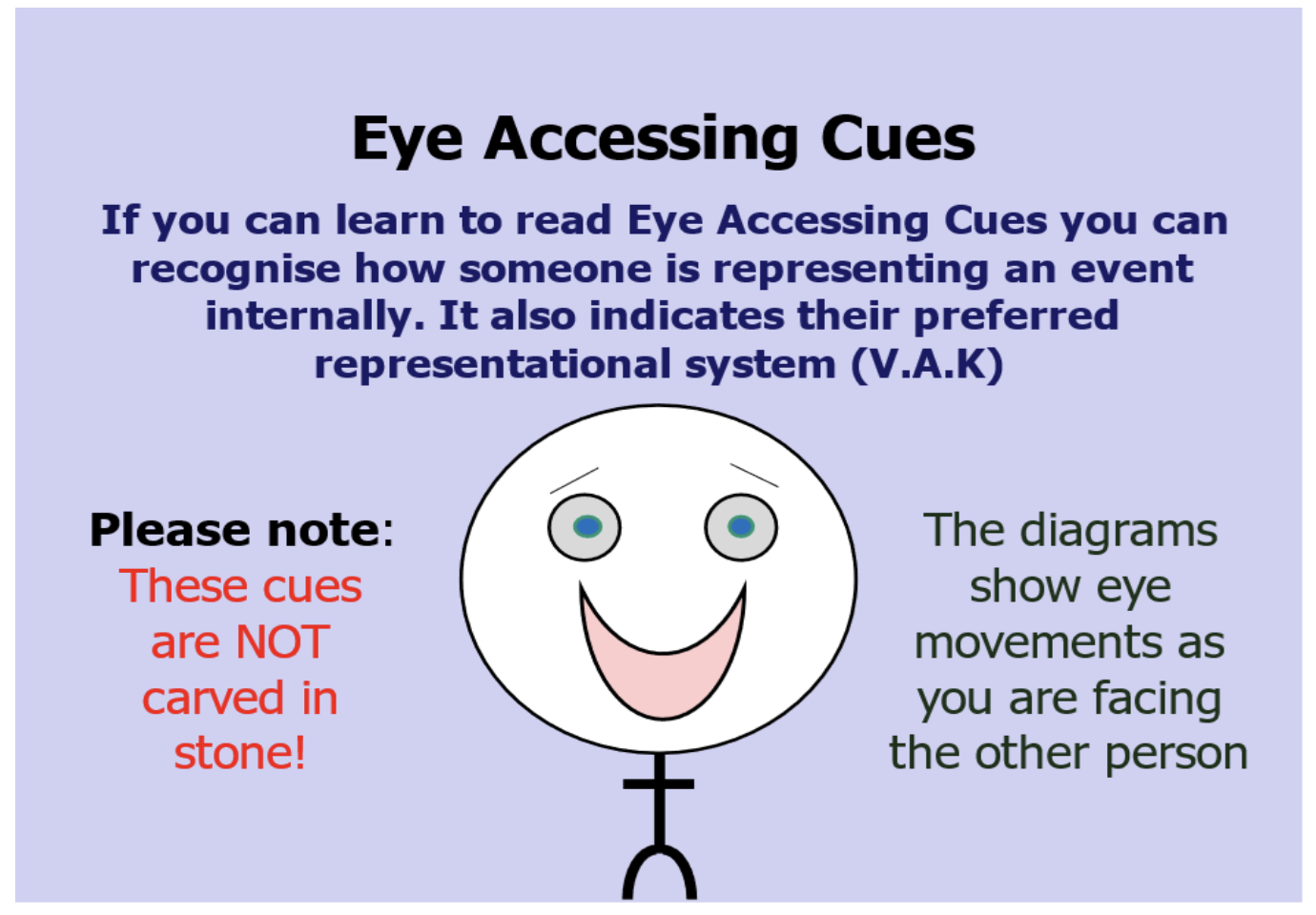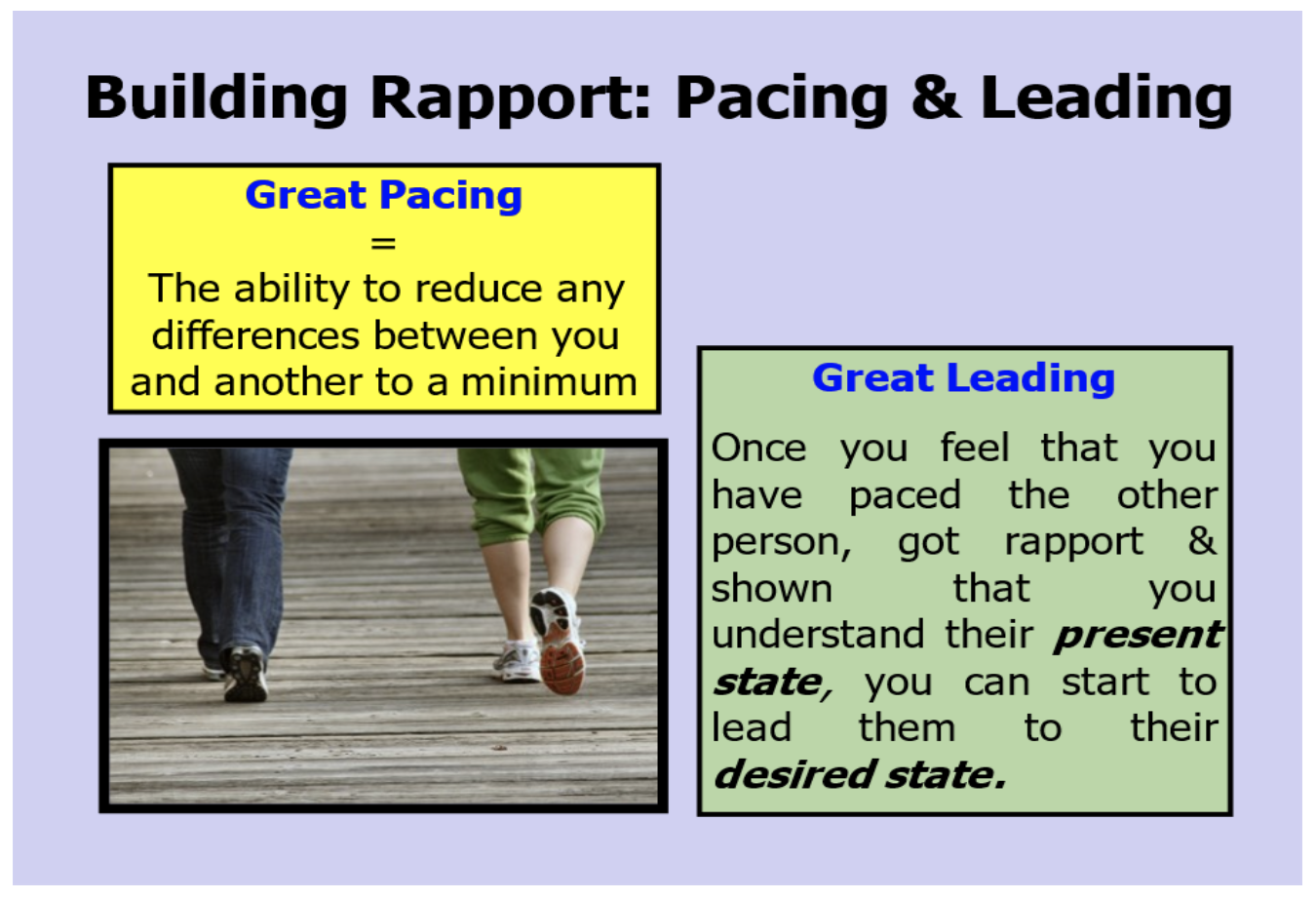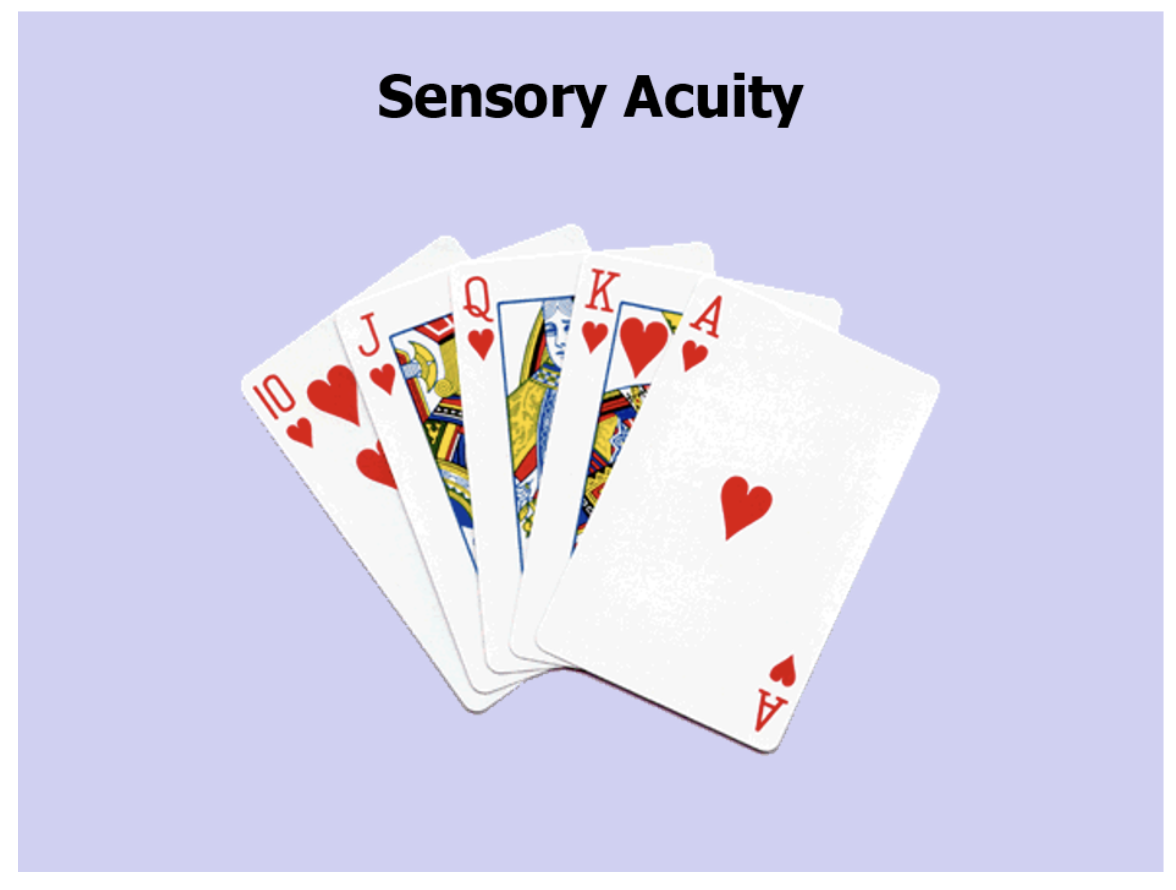1
3. Sensory Acuity, Mind-Reading for Beginners
3. Sensory Acuity, Mind-Reading for Beginners
Informazioni
Hey, Folks, we hope you’ve had a fantastic third day at the International training course Mental Health promotion in the youth field, and as always, we’d like you to spend this part of the day reflecting on the work we have been doing.
As usual, here’s with a quick review to jog your memory:
Eye Accessing Cues: We spent time this morning looking at how we can use people’s eye movements to help us to understand what’s going on in their heads. You will remember the exercise we did to see how our partner responded to certain questions…

Pacing and Leading: Pacing is where we match the other person’s communications before leading them to more resourceful states.

Sensory Acuity: This is the skill that we develop when we start to put together all the building-blocks of Rapport. We used this to do the exercise this afternoon when we tried to read each other’s “Poker Faces”!

Ottieni badge per l'attività
3. Sensory Acuity, Mind-Reading for Beginners Ottieni questo badge
This badge is a reflection tool for the third day of our training Mental Health promotion in the youth field. Today we looked at some advanced skills for building rapport:
- Using the unconscious clues that people’s eyes give us to help us understand how they are processing a problem, issue or question.
- The importance of Pacing and Leading as a skills to help us understand people’s present state before leading them to a more resourceful place.
- In the Sensory Acuity exercise we started to put together the skills and models we have been exploring so far.
The holder of the badge will have worked either on their own or in a small group to reflect on the questions:
- how the day has gone
- what has been learned
- how to use this in your youth work
- how else to use it.
The questions are designed to optimise generative learning: they are not just about what the participant has learnt but also how they can use the learning in their work and personal life.
- L1.2: Understanding that learning is a lifelong process that requires openness, curiosity and determination,
- L2.2: Comparing, analysing, assessing, and synthesising data, information, ideas, and media messages in order to draw logical conclusions,
- L2.3: Developing creative ideas, synthesising and combining concepts and information from different sources in view of solving problems,
- L3.3: Reflecting on and assessing purposes, processes and outcomes of learning and knowledge construction, establishing relationships across domains,
- P1.1: Awareness and expression of personal emotions, thoughts, values, and behaviour,
- P3.1: Awareness that individual behaviour, personal characteristics and social and environmental factors influence health and wellbeing,
- S1.1: Awareness of another person’s emotions, experiences and values, and
- S1.3: Responsiveness to another person’s emotions and experiences, being conscious that group belonging influences one’s attitude.
Attività
Task n.1
Prova verificata da: un organizzatore dell'attività
- How has today gone for you?
- What have you learnt?
- How can you use this in your youth work?
- How else can you use it?
Competenze
ESCO
#promuovere la salute mentale
LIFECOMP
#Growth mindset
LIFECOMP
#Critical thinking
LIFECOMP
#Managing learning
LIFECOMP
#Self-regulation
LIFECOMP
#Wellbeing
LIFECOMP
#Empathy
Organizzatori
Cities of Learning Network
Emittente di badge certificato con
Utilizzato nelle playlist
MENTAL HEALTH PROMOTION
Cities of Learning NetworkCreato su Global platform for Cities of Learning
L'organizzazione no-profit Awero gestisce questa piattaforma web e continua a svilupparla in partnership con organizzazioni leader nel settore dell'educazione. La prima versione di questa piattaforma è stata realizzata grazie ai cofinanziamenti del programma Erasmus+ dell'Unione Europea. Contattaci all'email support@awero.org.
Piattaforma
Cambia lingua:

